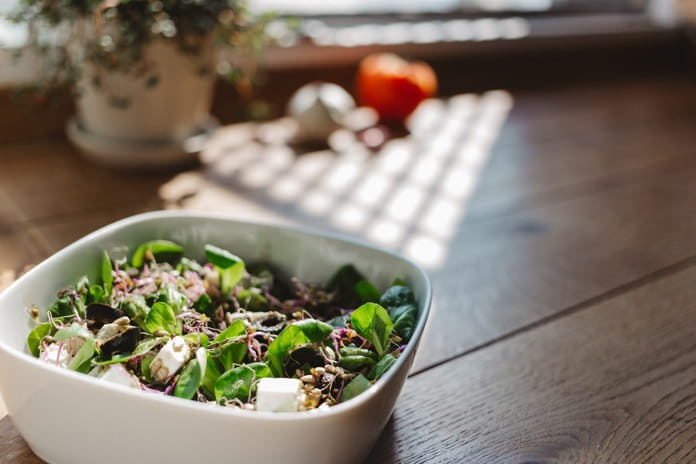A recent study in JAMA Oncology determined if a low-fat breast cancer diet after diagnosis of breast cancer can improve overall survival rates.
Breast cancer is the second most common cancer in women and may affect one in eight women during their lifetime. There has been an increase in breast cancer awareness through education on its symptoms and treatments. There have also been more efforts to understand the risk factors associated with breast cancer. In addition to age, sex, and genetic predisposition, researchers have found that diet may also be associated with breast cancer.
Dietary factors influencing breast cancer
Many studies have evaluated the effects of dietary factors on the risk of breast cancer. Some studies suggest that a high fat content in a diet may be associated with an increased risk of breast cancer in postmenopausal women. The guidelines for breast cancer prevention recommend an increase in the consumption of fruits, vegetables and grains. Some other studies indicate that obesity increases the risk of breast cancer recurrence.
Uncertainties from a previous study
Researchers have been trying to examine if there is a breast cancer diet that can influence the patient’s chance of cancer recurrence and overall survival after diagnosis of breast cancer. The scientists from Hope National Medical Center in Duarte, California, USA, conducted a secondary analysis of the Women’s Health Initiative (WHI). This was a randomized clinical trial that showed an association between a low-fat breast cancer diet and better overall survival in patients diagnosed with breast cancer.
The trial included 48,835 postmenopausal women enrolled between 1993 and 1998 who had no previous breast cancer. The participants reported a fat intake of more than 32% at the start of the study. The researchers randomly assigned participants to a dietary intervention group with reduced fat intake and increased fruit, vegetables, and grains intake or a usual-diet group. Although the trial results at that time showed an association between a low-fat diet after breast cancer diagnosis and better overall survival rate, the researchers did not conclude if the improved survival rate was due to the dietary patterns the women had before developing breast cancer, or if it was a result of the dietary intervention during the trial.
Analysis clarifies uncertainties related to breast cancer diets
The secondary analysis, published in JAMA Oncology, is also a randomized controlled trial that examined 19,541 postmenopausal women diagnosed with breast cancer. These participants reduced their dietary fat intake by 20% while significantly increasing their fruit, vegetables, and grains intake. The control group of 29,294 women with breast cancer continued with their usual diets. The median dietary intervention period of the study was 8.5 years and the median follow-up period was 11.5 years after diagnosis.
Women following a low-fat breast cancer diet had significantly greater survival rates
They diagnosed a total of 1764 breast cancer cases during the dietary intervention. Of these 671 were in the intervention group and 1093 were in the control group. The overall survival rate of women who consumed the low-fat diet was 82% compared with 78% survival rate in the control group.
There were 120 deaths from breast cancer in the control group while only 68 deaths were reported from breast cancer in the intervention group. Furthermore, the number of deaths from other cancers and from cardiovascular disease were far fewer in the dietary intervention group than the usual-diet group.
Longer exposure to dietary interventions provides more benefits
The results showed the positive effects of the intervention on breast cancer overall survival during the intervention period. The researchers observed that these benefits increased as the time from breast cancer diagnosis increased, suggesting that consumption of breast cancer diet for longer periods has the most influence on survival rates. In other words, the breast cancer patients need long-term intervention diet for the continued effect on breast cancer.
The randomized design of this study, a large sample size, follow-up of all breast cancer patients, and a long follow-up period are some of the main strengths of this study. The researchers indicate that the need for confirmatory trials and an incomplete information on breast cancer therapy of the patients are some of the limitations of the study.
A breast cancer diet may influence breast cancer outcome
The study results show that women who consumed a breast cancer diet consisting of low-fat content and high fruits, vegetables, and grains had an increased overall survival rate from breast cancer compared with women who followed their usual diets. The researchers suggest that this increased survival rate may partly be attributable to a better survival from several causes of death.
Written by Preeti Paul, MS Biochemistry
Reference: Rowan T. Chlebowski et al. Association of Low-Fat Dietary Pattern With Breast Cancer Overall Survival. A secondary analysis of the women’s health initiative randomized clinical trial. JANA Oncol.doi:10.1001/jamaoncol.2018.1212



